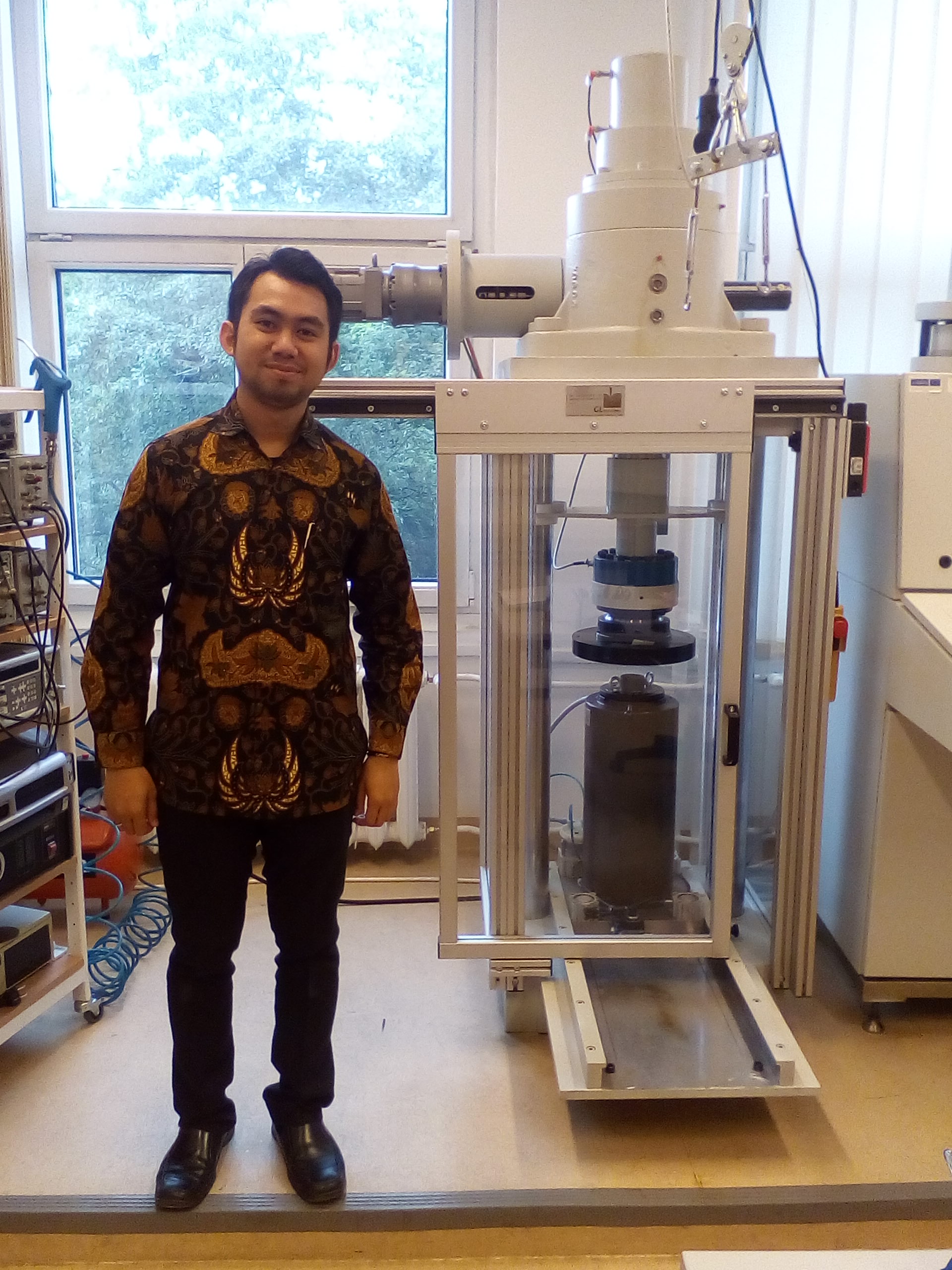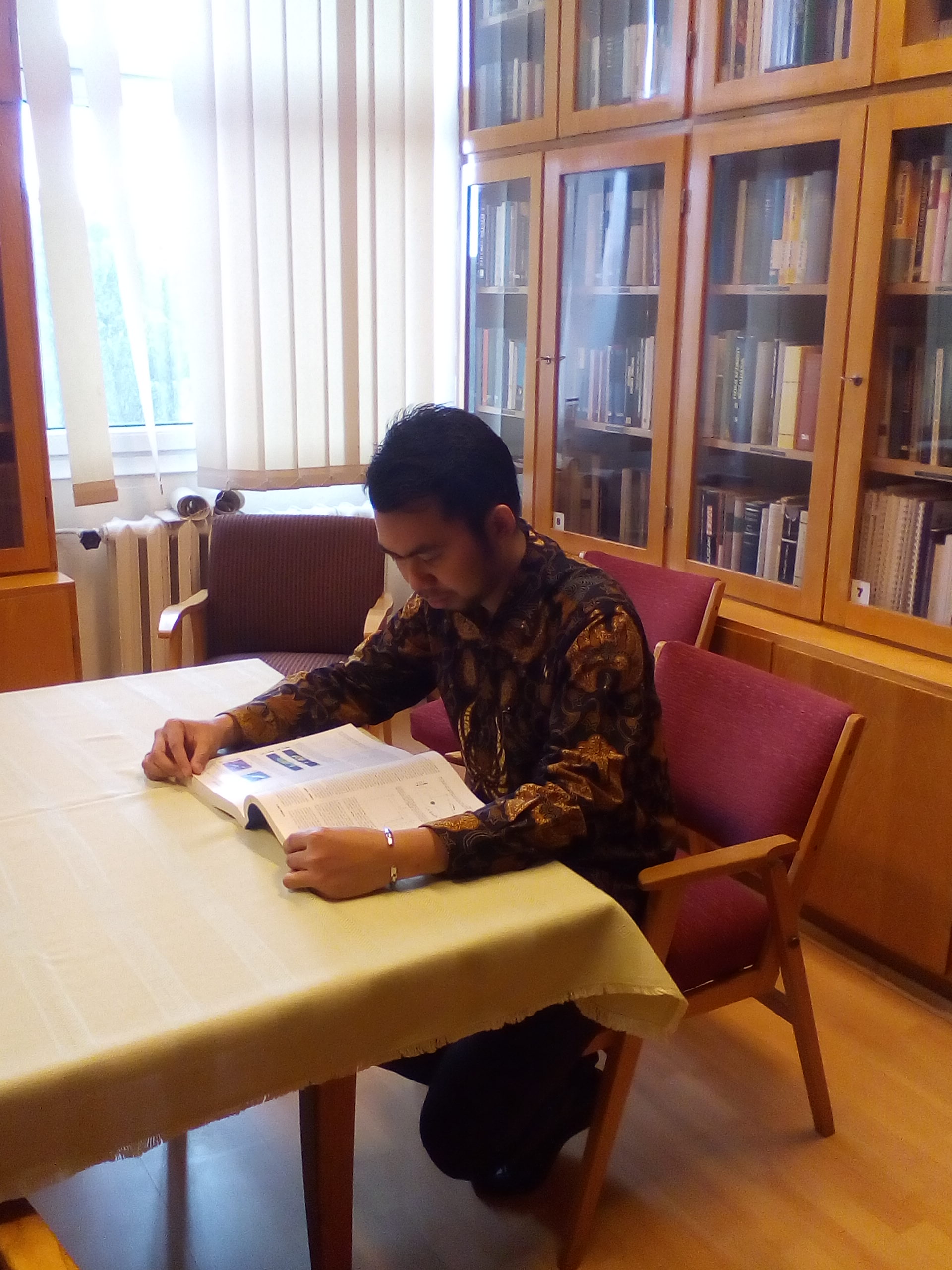Interview with the Unstoppable Muhammad
- Why did you choose to come and study in Hungary? What attracted you to the University of Miskolc?
The main reason that I decided to come to Hungary because I want to broaden international experience especially in European countries. Moreover, Hungarian government provides an outstanding scholarship of Stipendium Hungaricum, so it triggered me to take a place of this precious opportunity. I chose University of Miskolc for my master study because this university provides a unique program related to my interest which is petroleum geoengineering. This program is strongly dedicated to link geosciences to engineering backgrounds.
- How did Earth Science become a part of your life?
I was born and grown up in a small village but full of petroleum and coal mining industries in both exploration and exploitation activities. Also, my father was working there as a helper and he motivated me also to be involved in this working area for my future. Therefore, it is easy for me to decide to pursue my study in the field of earth science.
- What has been the biggest challenge during your studies?
Firstly, because my Bachelor’s background is petroleum engineering, when I started in Petroleum Geoengineering, there were a lot of new information which was not really familiar for me. Also, my English skill was not really good, and it made me struggle to understand every single subject from the professors. But, I always try and try to practice and stay self-motivated to enhance my language skills especially speaking and writing skills by going to conferences and student contests, and these activities automatically improved my English.
- Your research fields are petrophysics and borehole geophysics. What should a layperson know about these fields? What makes them important and interesting for us? What are their role in the exploration of mineral/hydrocarbon (oil and gas) resources?
Petrophysics is similar like what medical doctors do. They try to investigate some anomalies happened in our body in order to determine the illness of our body. For instance, they use x-ray, stethoscope, Magnetic Resonance, USG, etc. to see something inside our body. So as petrophysics, we also try to understand the behaviour of anomaly of physical responses of rocks, we try to make a visual image of subsurface formations based on measuring electric, sound and radioactive parameters on the rock samples and try to find out the valuable material inside the rock, in this case oil and gas.
Petrophysics has a crucial role in both exploration and exploitation jobs. They are responsible for determining the interval location of hydrocarbon of oil and gas in subsurface when we drill a well into the earth. Petrophysics provides in situ and the most information inside the borehole (rock types, the rock ages, pressure and temperature, type of fluids, etc).
- Where do you collect data for your researches? How do you decide where to go and find the most suitable measurement sites?
I collected my data from many resources. The simplest way that I usually use data which are published free in some papers and or from some open source database by some governmental institutions or oil companies such as UK and Norwegian oil companies. The other sources I usually collect data from are by cooperating with some government institutions and/or oil companies and ask for permission to their use. The last one is my own measurements. However, this is not really easy, because the measurements I do cost a lot and they are not cheap.

- What are the most and the least interesting parts of your work?
When I get the same result that I expected in my hypothesis, it becomes the most interesting part of my work. Also, when the new idea comes during work in a particular research, it makes me really curious to do the next research again as soon as possible. However, it becomes the least interesting when you have many ideas to be investigated, but there is no data available for this work.
- Are the laboratories of the University of Miskolc well-equipped enough for such researches? What kind of equipment do you use?
Yes, they are. They have a petrophysical laboratory, in which they can measure seismic properties of rocks under the same pressure conditions as they were several kilometres under the Earth’s surface. In addition to it, I have visited many laboratories during my study here such as core analysis for special and routine core, Scanning electron microscope, XRD, thin section, micro CT, velocity measurements, and many more. Unfortunately, I have not used any of them for my research activities, because in my short time during the preparation of my master’s thesis I was made to use secondary data from published open data set and some joint research collaborations with some companies and governments.
- How do you process the collected data? What kind of methods are used? How do you develop new methods?
I follow many researchers’ works in ResearchGate and also professional societies. Reading many papers and actively participating in professional discussions during conferences have triggered me to develop the idea to do research in my area of interest. I collected data by communicating with some researchers, my professors, government institutions, or oil companies for collaborating research and I can use their data for publication free. Also, if the data was published in a paper or in a book, I just mention the source of the literature when I use the data.
- How could your researches and measurements help our society and our world?
It is related with the question point 4, my researches are linked strongly to the field of petrophysics, they are focused on the uncertainty reduction of geophysical/geological interpretation and determining the valuable natural resources (hydrocarbon) in subsurface. Therefore, in general, my researches take a role in support the energy sustainability for the world. Also, these help the society to improve the knowledge and to understand rock behaviour and properties in subsurface which is very crucial for people who work in the field of geosciences and engineering.
- You are going to graduate this year – as one of the first-year students of the Petroleum Geoengineering Masters’ program. What is your favourite memory of your Hungarian stay so far?
I met great friends from local and international areas, received many awards from Hungarian and international societies, getting more chances to join international conferences, also I can live happily with my wife and it is easy to travel to many countries around Europe.

- Would you recommend the University of Miskolc for other people and why?
Absolutely sure, because during my studies here, my knowledge and performance became significantly well-developed. There are a lot of professors who are outstanding in their field of study, and the university environment is very convenient to study.
- What are your plans for the future? Where do you think you will be in 20 years’ time?
I will start my PhD studies as soon as possible. I dedicate myself to research and educational activities. I really hope that I can be an outstanding professor in the field of energy development and I hope to have my own laboratory in the next 20 years. Also, I have an ambition to be a good leader for my country and take a role in better energy sustainability.
I wish you all the best and I hope you will fulfil all your plans and dreams. Thank you for the interview.
(This interview was taken and written by Henriett Tóth (rektheni@uni-miskolc.hu), with the scientific help of Dr Norbert Péter Szabó (Institute of Geophysics and Geoinformatics). The photos were taken by Henriett Tóth.
